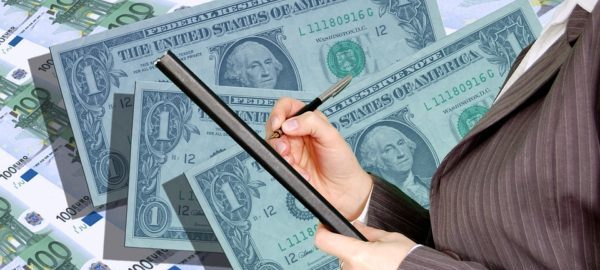 Assume for a moment that your small business is applying for a line of credit or for a loan. Maybe you’re applying for a business credit card or taking out a small business loan from the SBA or other lenders. Would it surprise you if they didn’t run your credit history and assess your score before handing over the money?
Assume for a moment that your small business is applying for a line of credit or for a loan. Maybe you’re applying for a business credit card or taking out a small business loan from the SBA or other lenders. Would it surprise you if they didn’t run your credit history and assess your score before handing over the money?
Of course it would surprise you. Yet if your business doesn’t collect payment upon delivery of your products or services, you are essentially extending credit to your customers. Because of this it is important to know that the businesses you are selling to are healthy and will be able to pay you. The best way to achieve this is through pulling business credit reports and properly vetting your B2B customers.
The Basics of Business Credit
Whether you know it or not your small business has a credit score. Like your personal credit score, business credit can be improved not only by paying your bills on time but also having a low debt to available credit ratio. Your score may also take into account the amount of time you’ve been in business.
According to credit agency Experian, there are three main types of information collected for a business credit score:
- Legal court filings
- Background information from collection agencies, credit card companies, public records, etc.
- Payables due to suppliers and credit obligations from lenders
In addition to Experian other credit bureaus such as Equifax and Dun & Bradstreet also collect and compile business credit information. Unlike personal credit scores that range from 300 to 850, business credit is scored on a far more logical 0 to 100 scale. A business credit score of 75 or higher is often considered to be excellent.
Pulling Credit for B2B Customers
Another way that business credit differs from personal credit is that pulling a business credit report will not affect the score. Because of this there is no consent necessary for receiving such reports. This allows you to assess the credit worthiness of your clients without them even knowing.
By pulling their credit you’ll be able to see if the company has outstanding payables or if they’ve frequently made late payments to other vendors. Should you find negative information in a B2B customer’s report, you can choose to require the customer to pay in cash upon delivery or simply not do business with them.
There are several methods for obtaining business credit reports and the prices for these services vary. Reports can be purchased individually directly from credit bureaus or from a subscription service on sites such as Equifax, Creditsafe, or Dun & Bradstreet. Although some of these reports may seem a bit pricey, it’s important to keep in mind that if pulling the credit report saves you from losing one order to nonpayment it may very well be worth it.
It should also be noted that business credit can be very volatile. Just because a company has a good credit score at the time your relationship starts doesn’t mean that it will stay that way forever. Changes in the market can happen quickly and so it may be necessary to pull their credit again in the future. You should always look for warning signs such as late payments and consider changing your policies with delinquent companies accordingly.
Understanding Business Credit Reports
Reading and comprehending a full business credit report might sound intimidating for some small business owners. However, there are a wealth of online resources available to help businesses understand their own credit scores as well as those of other companies. Score.org explains some of the numbers and categories you may encounter when assessing a business credit report. Again, it’s worth taking the time to learn how these reports work so that you don’t lose money to an un-creditworthy customer.
Conclusion
Business credit can be just as important as personal credit. Although it may seem that a small business doesn’t need to know the credit of their B2B customers before doing business, the truth is that small business are more susceptible should a deal go bad. Investing in pulling business credit reports for your customers can help prevent your business from losing money down the road.
Business & Finance Articles on Business 2 Community(53)






